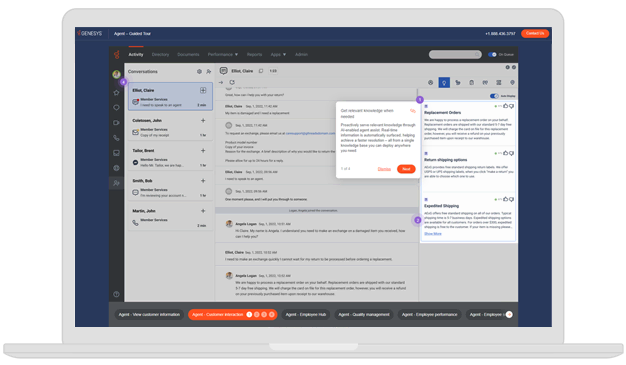Artificial intelligence (AI) readiness is the measure of an organization’s preparedness to implement and scale AI technologies effectively. It includes factors such as data quality, infrastructure, skills, ethical governance and change management. Companies with high AI readiness are able to move from experimentation to production faster, achieving meaningful business outcomes.
Assessing readiness helps organizations identify gaps — such as lack of training data or unclear use cases — and build a roadmap for responsible and scalable AI adoption. It’s a critical step toward transforming customer and employee experiences with AI.
“Many companies make the mistake of deploying generic AI models and expecting immediate results. But when AI lacks industry‑specific or customer‑centric data, it can produce impersonal and ineffective interactions that fail to drive business outcomes.”
Glenn Nethercutt, Chief Technology Officer, Genesys
Enterprise AI readiness
AI readiness for enterprise businesses means being prepared to successfully use artificial intelligence tools across the totality of the company. It involves more than just buying new technology — it’s about having the right people, processes and data in place.
To be AI-ready, a business needs high-quality data that is organized and secure. Without good data, AI tools won’t work well. The company also needs skilled teams who understand how to use AI and keep it running safely. This includes training staff and hiring experts when needed.
Another part of AI readiness is having a clear plan for where and how AI will be used. Businesses must think about goals, such as improving customer service, saving time or reducing costs. They also need to make sure they follow rules about privacy, fairness and transparency.
Being AI-ready helps enterprise companies get more value from their tools and avoid mistakes. It sets them up for long-term success by making sure their AI solutions are smart, safe and aligned with business goals.






